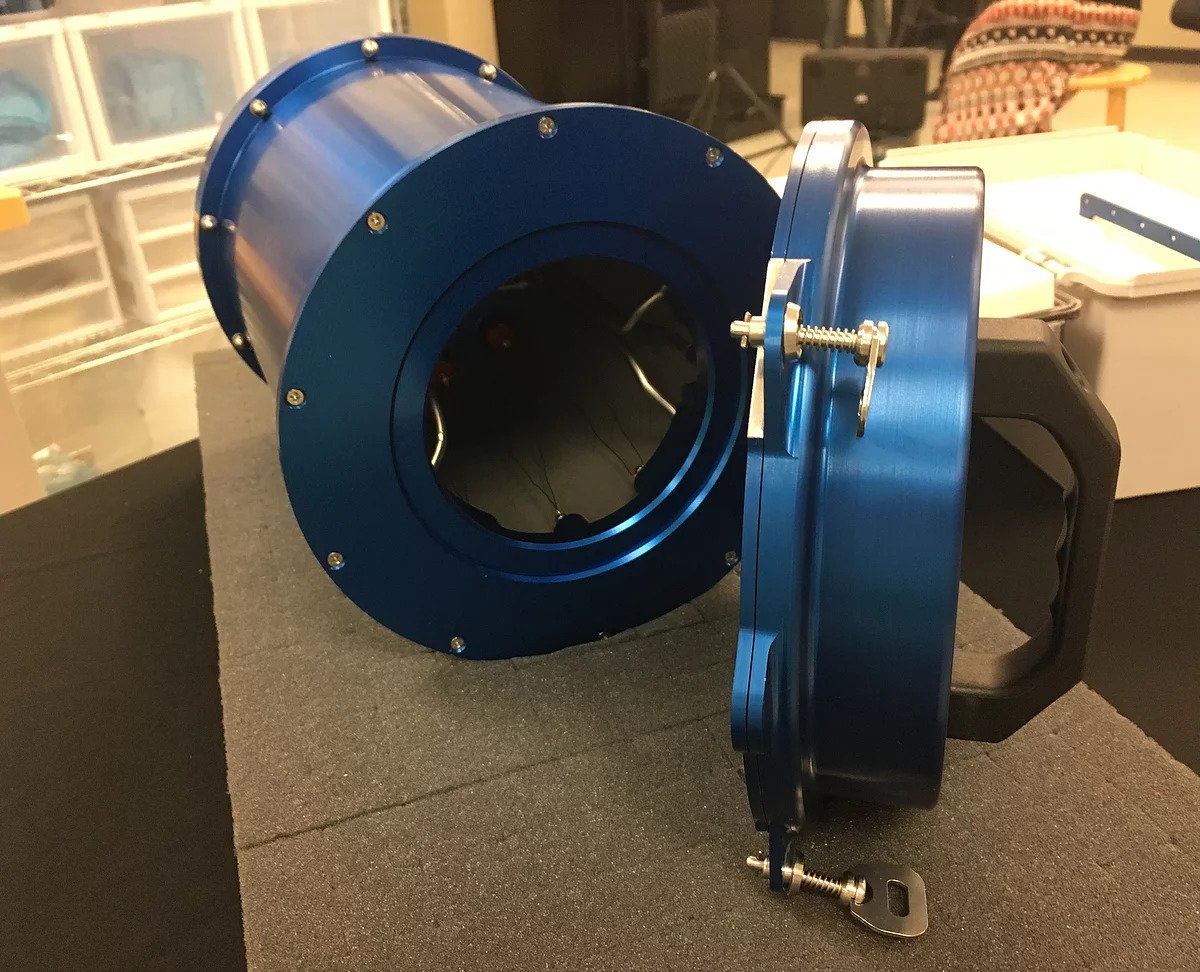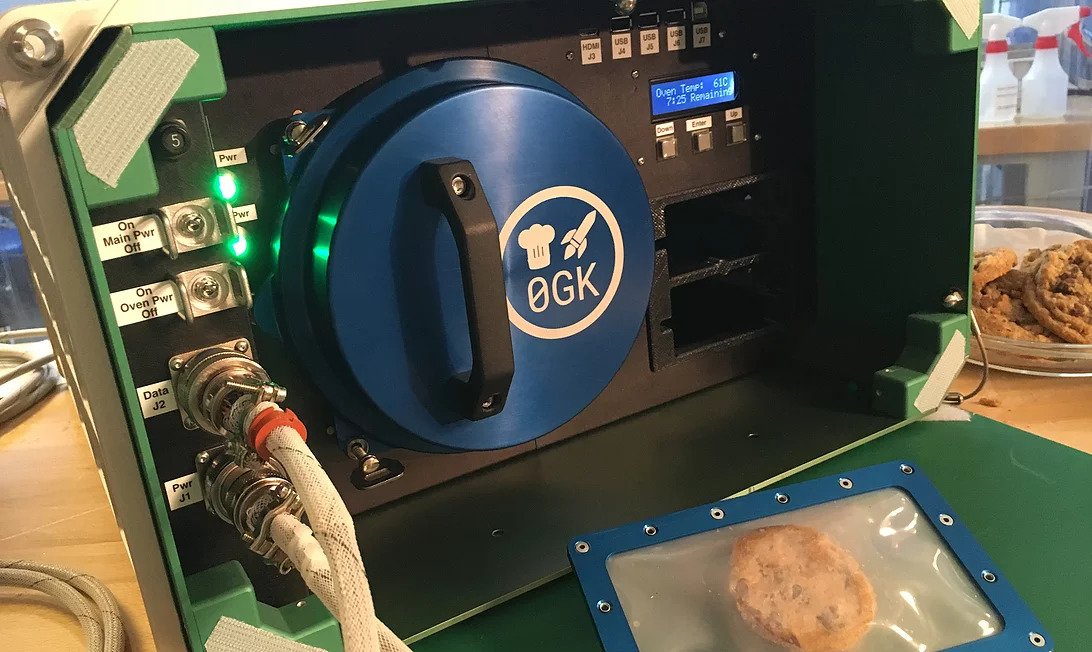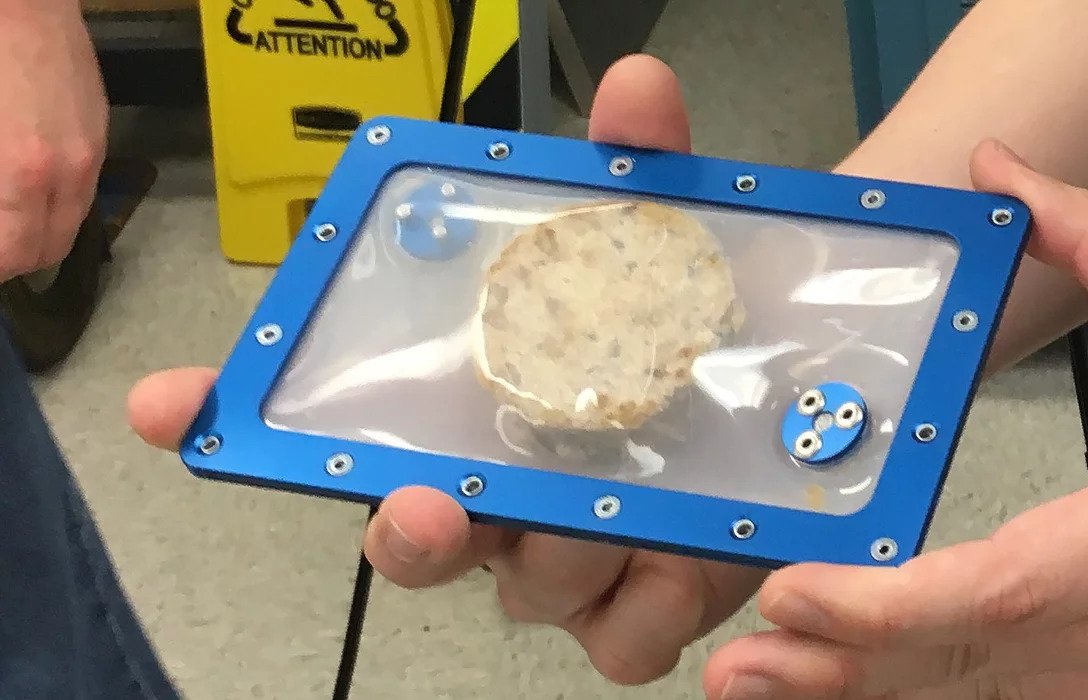
Unlike early space travelers, who had to consume mysterious powders, purees, and freeze-dried cubes, today's astronauts enjoy a variety of freeze-dried meals, snacks, and desserts that can be commonly found on Earth. However, delicious as the cuisine is, it pales in comparison to a freshly-cooked meal. Though the ability to cook an entire spread in space may take a few years, astronauts at the International Space Station (ISS) may soon be able to enjoy freshly-baked cookies, thanks to a newly-acquired space oven.
The Zero-G oven built by NanoRacks — a space company that helps develop experiments for the ISS — was among the 8,200 pounds of science investigations and cargo aboard a resupply spacecraft sent to the ISS on November 2, 2019. The cylindrical-shaped appliance, which can be plugged into the same apparatus used for scientific experiments with electricity, is specially designed to withstand the space station's microgravity environment.

Mary Murphy, a NanoRacks payload manager who helped develop the space oven, says the biggest challenge was keeping the cookie dough from floating inside the oven. “Here on Earth, it’s pretty easy: You grab cookie dough, and you plop it on a tray, and you slide it into the oven,” she says. “Our concern was, if you push the cookie in the center of the oven, where does it go? Is it going to stay there in the center? Is it going to slide off to the side somewhere?”

To bypass the hurdle, the inventors decided to keep the slab of cookie dough inside a sealed tray that can be placed directly into the oven. Once the cookies are baked, the plate is automatically transported to an integrated cooling vent, which can only be accessed once the treats are at room temperature. While this helps protect astronauts from oven burns, it also means there will be no fresh baking smells wafting through the ISS!
Murphy says, "What’s so interesting about this is that it will be the first time anything will be baked in space. What will the cookies look like? Will they bake out equally in all directions and form a sphere, or stay flat? While we don’t know for sure how the experiment will turn out, we are looking forward to finding out and learning how to best bake food products in space.”

While the cookies' appearance will be revealed soon, their taste will remain a mystery for some time. That's because the freshly-baked space treats will not be devoured by the astronauts, but instead, will be returned to Earth to undergo testing to ensure they are safe to consume. Fortunately, DoubleTree by Hilton, sponsor of the test chocolate chip cookie dough, also sent along a batch of pre-baked delicious treats for the astronauts to enjoy while they wait for the results!
Though freshly cooked space food may seem like an indulgence, NASA believes that “Crew members may experience psychological and physiological benefits from eating flavorful cooked meals.” Also, astronauts on extended missions to Mars and beyond will not have the luxury of cargo deliveries, nor the room to carry large amounts of pre-prepared meals. The most efficient solution, therefore, will be to carry ingredients that can be cooked en route.
Resources: www.nasa.gov, www.theatlantic.com, www.scientificamerican.com
